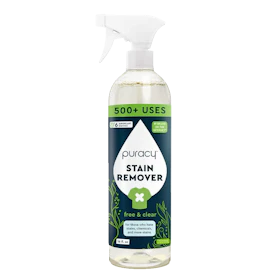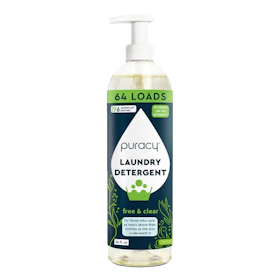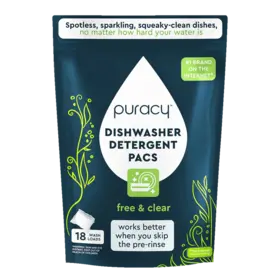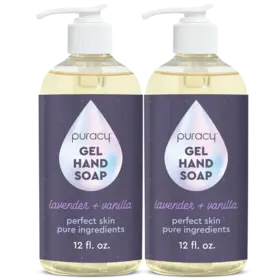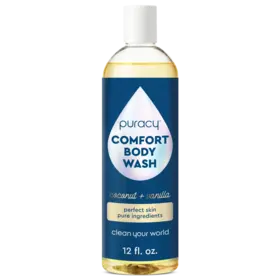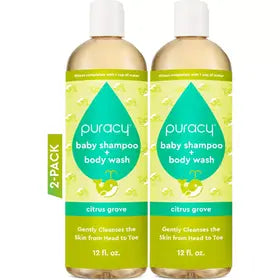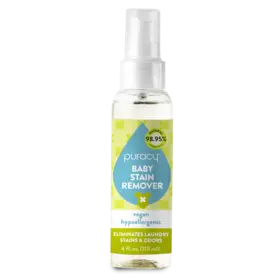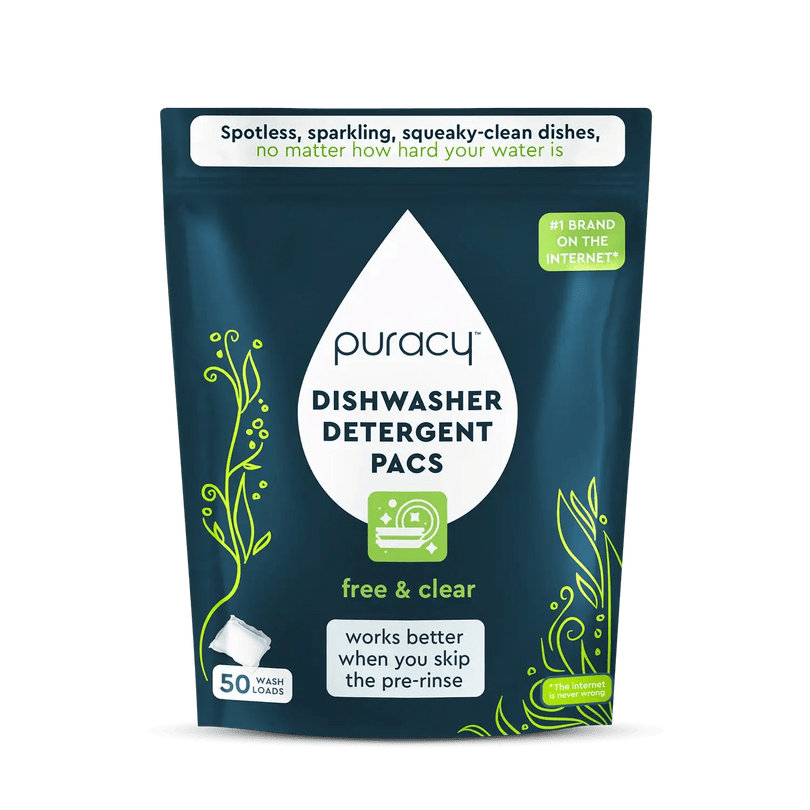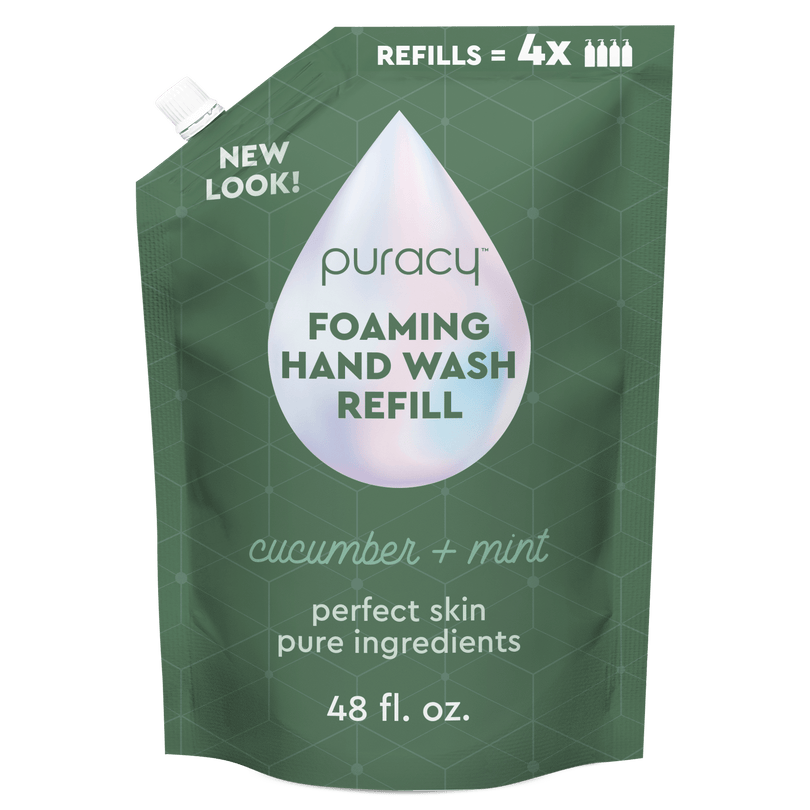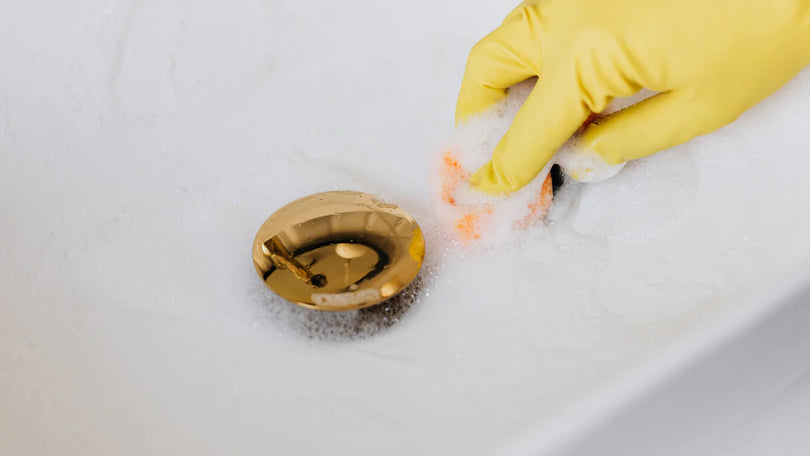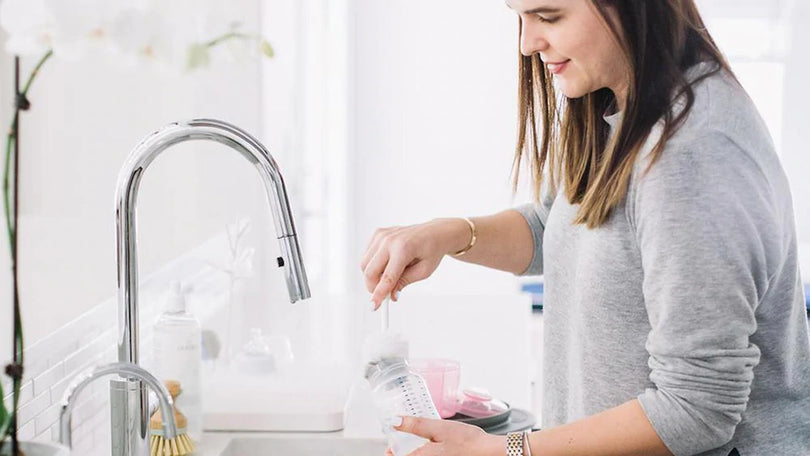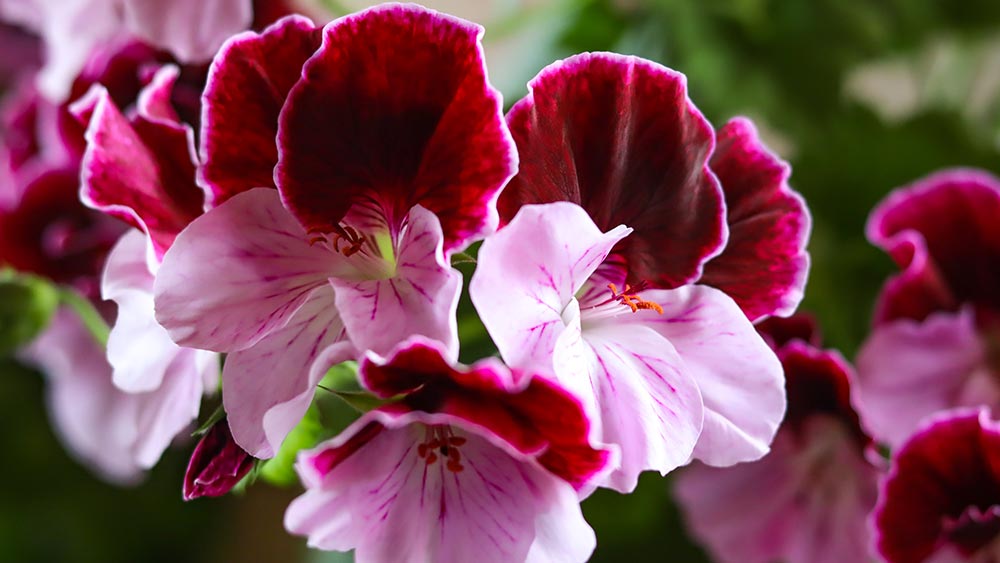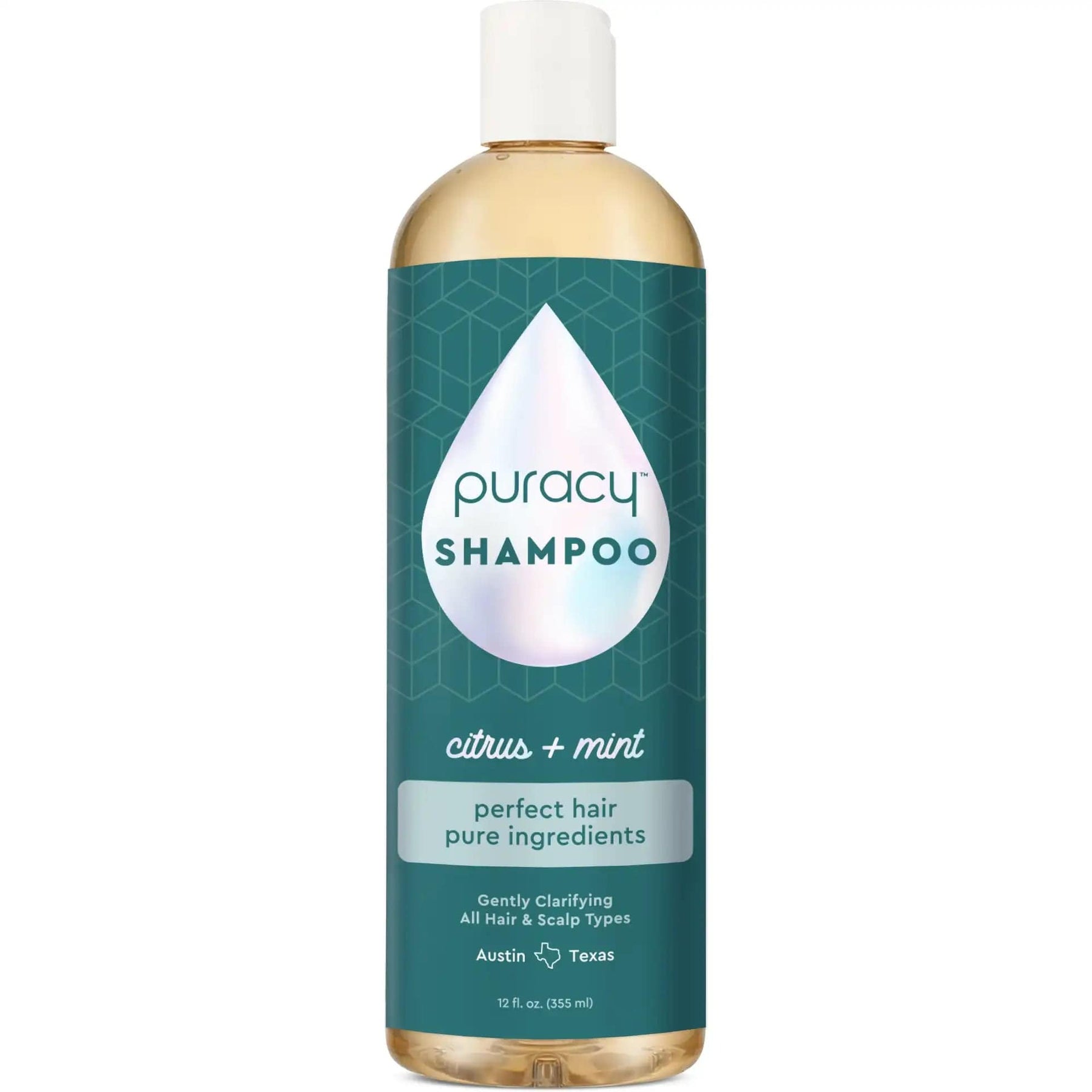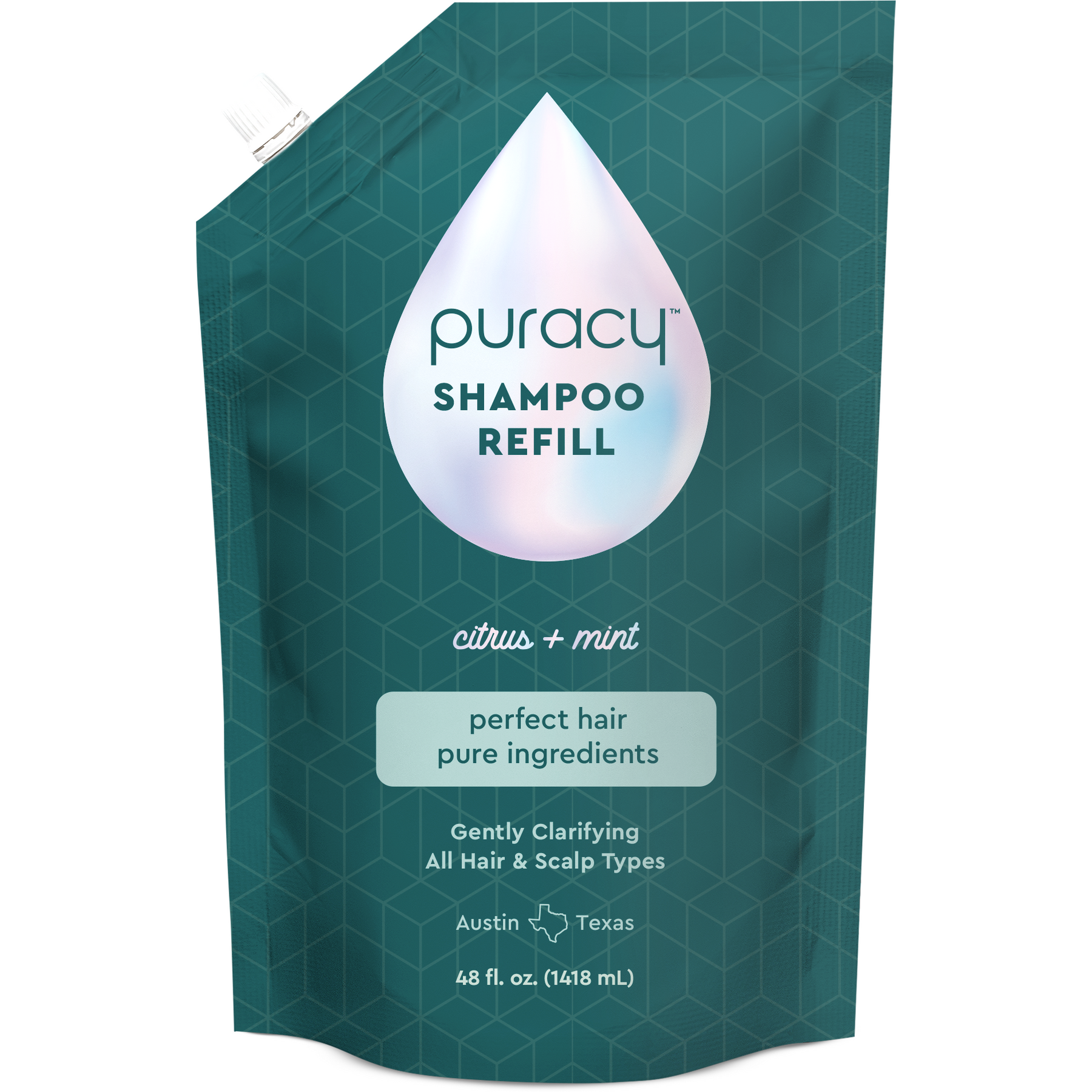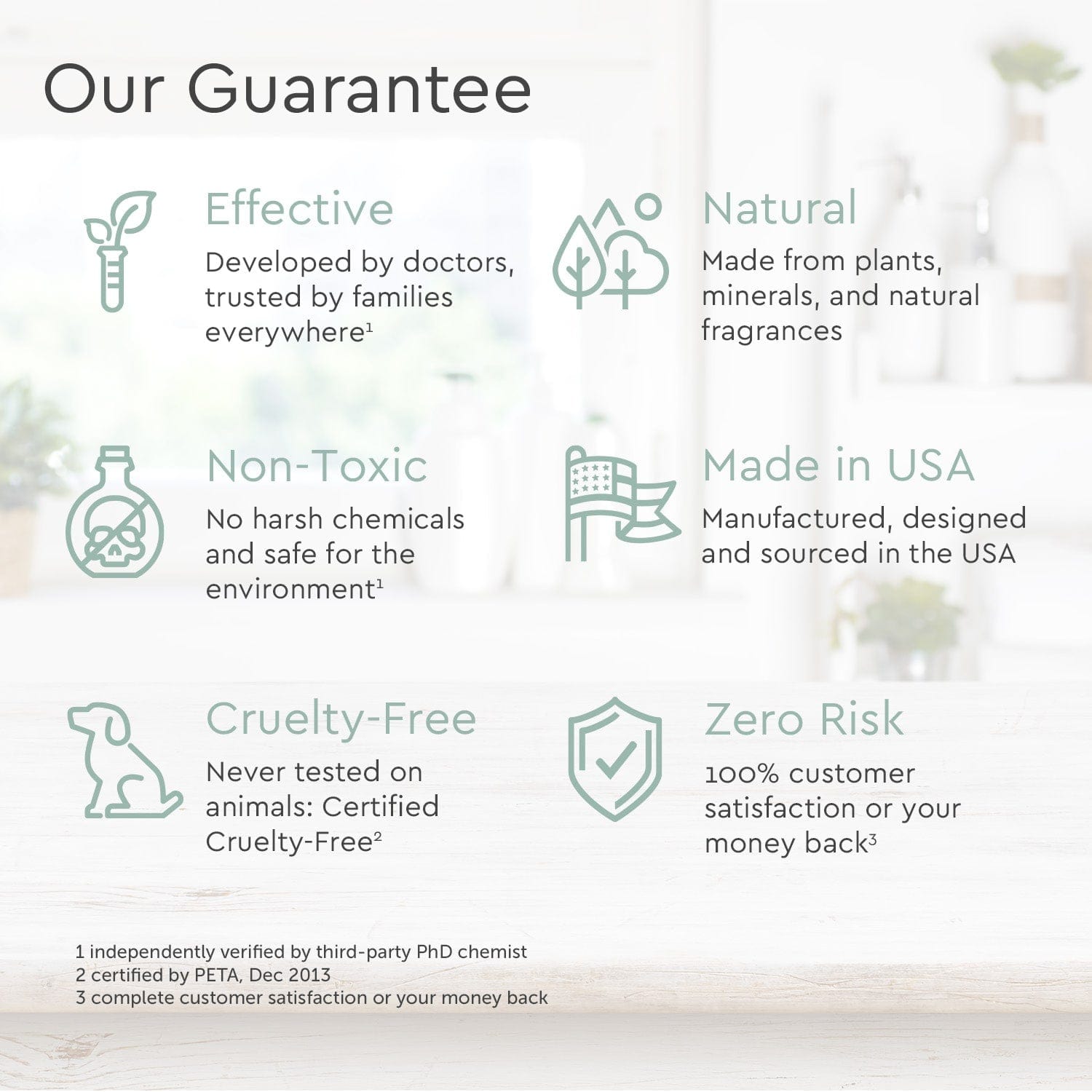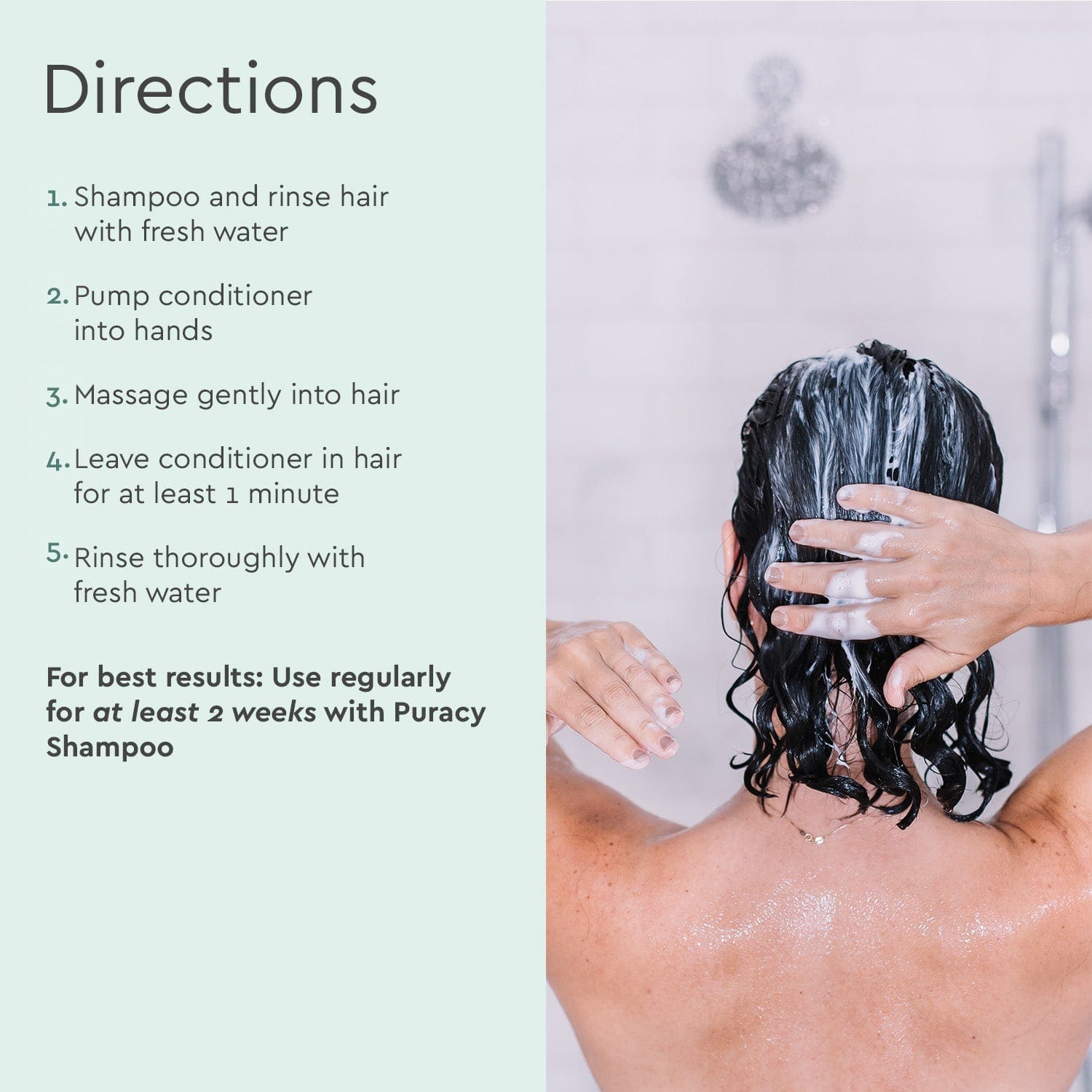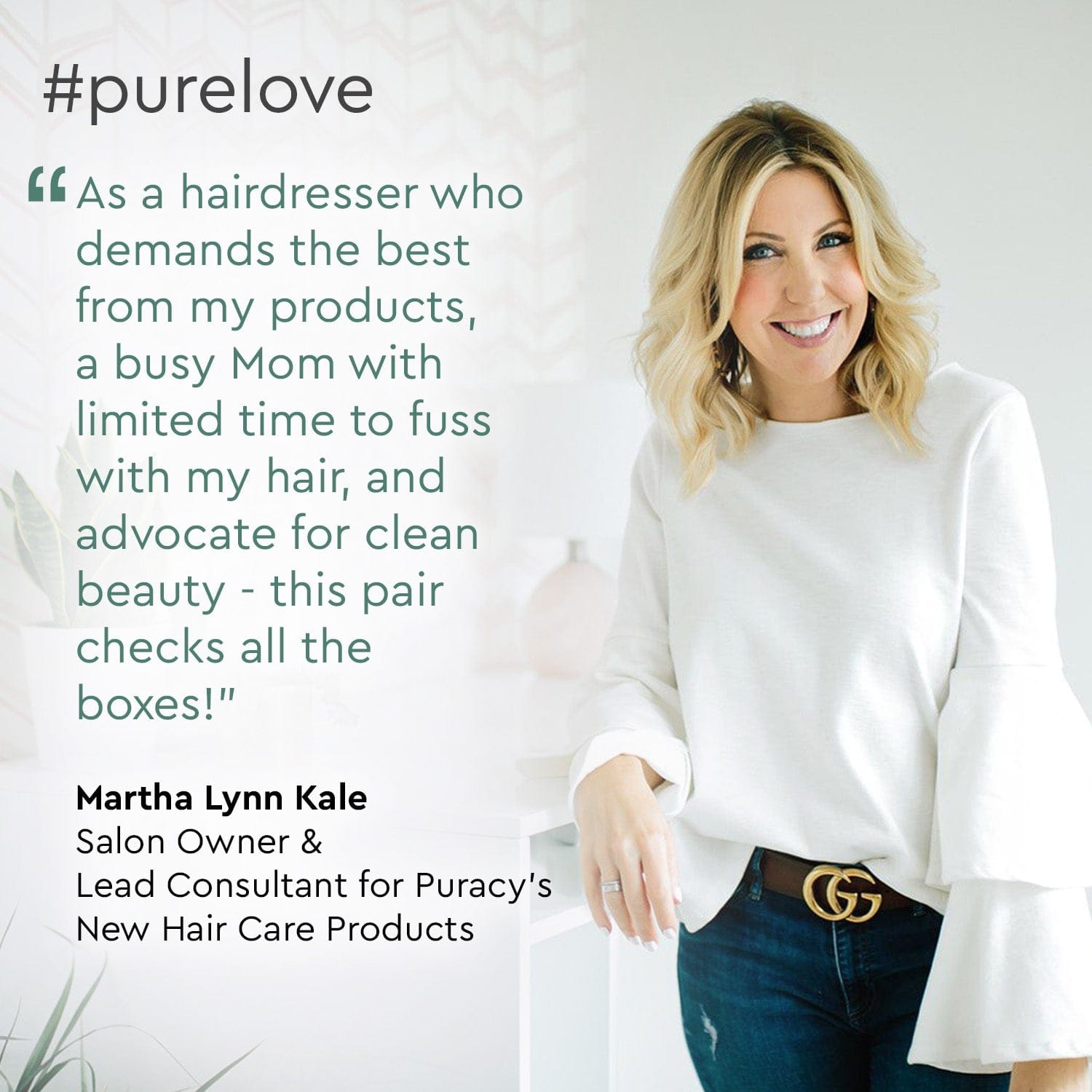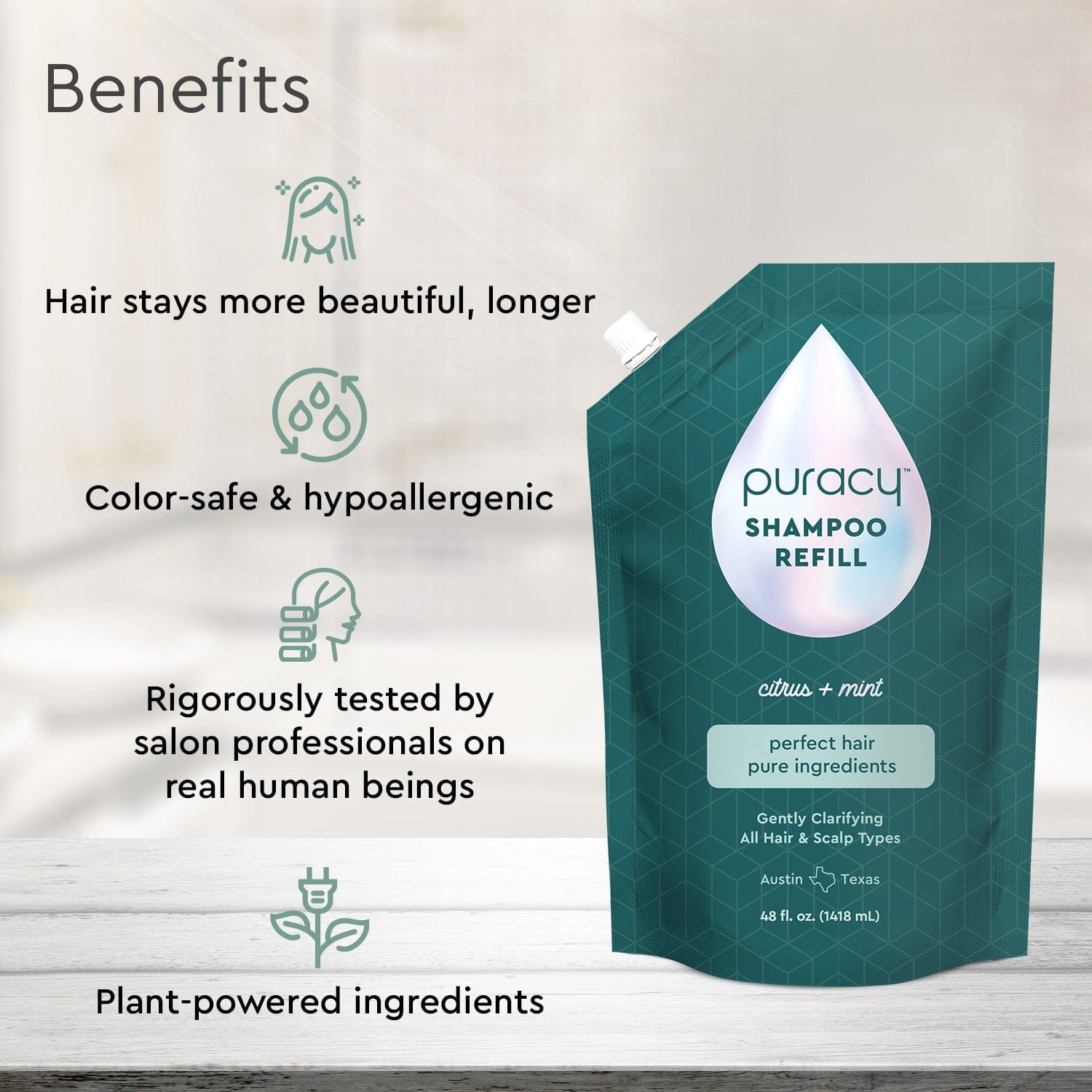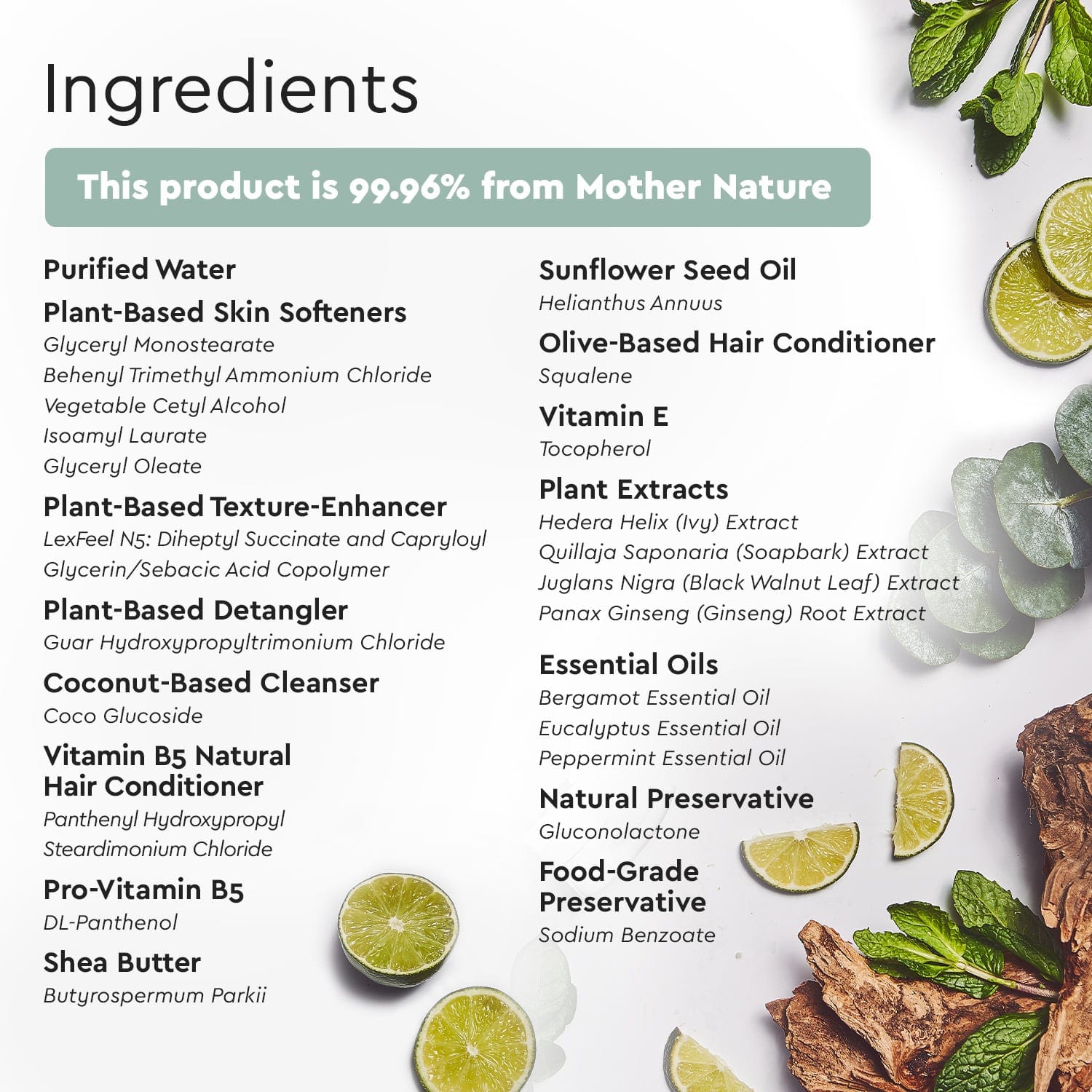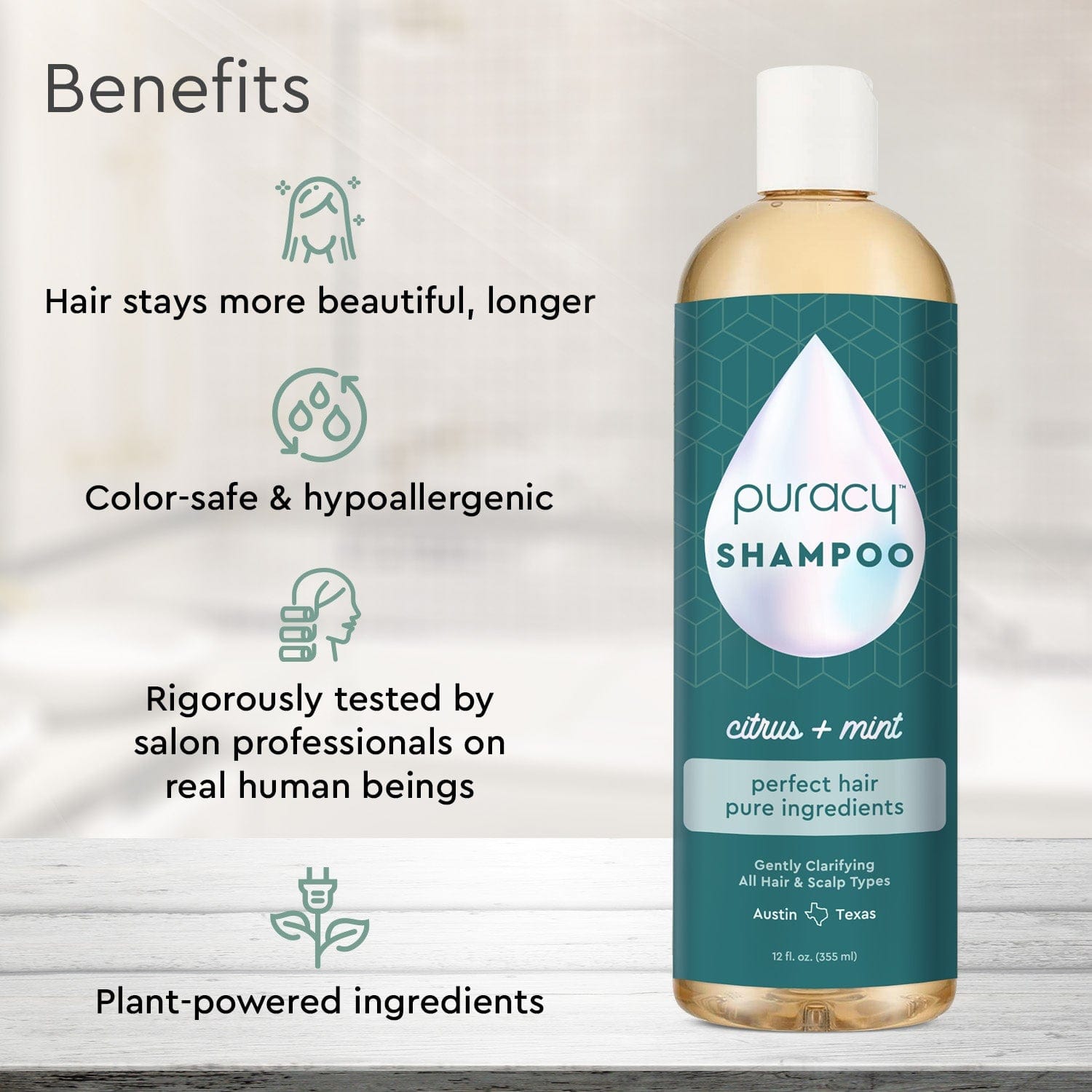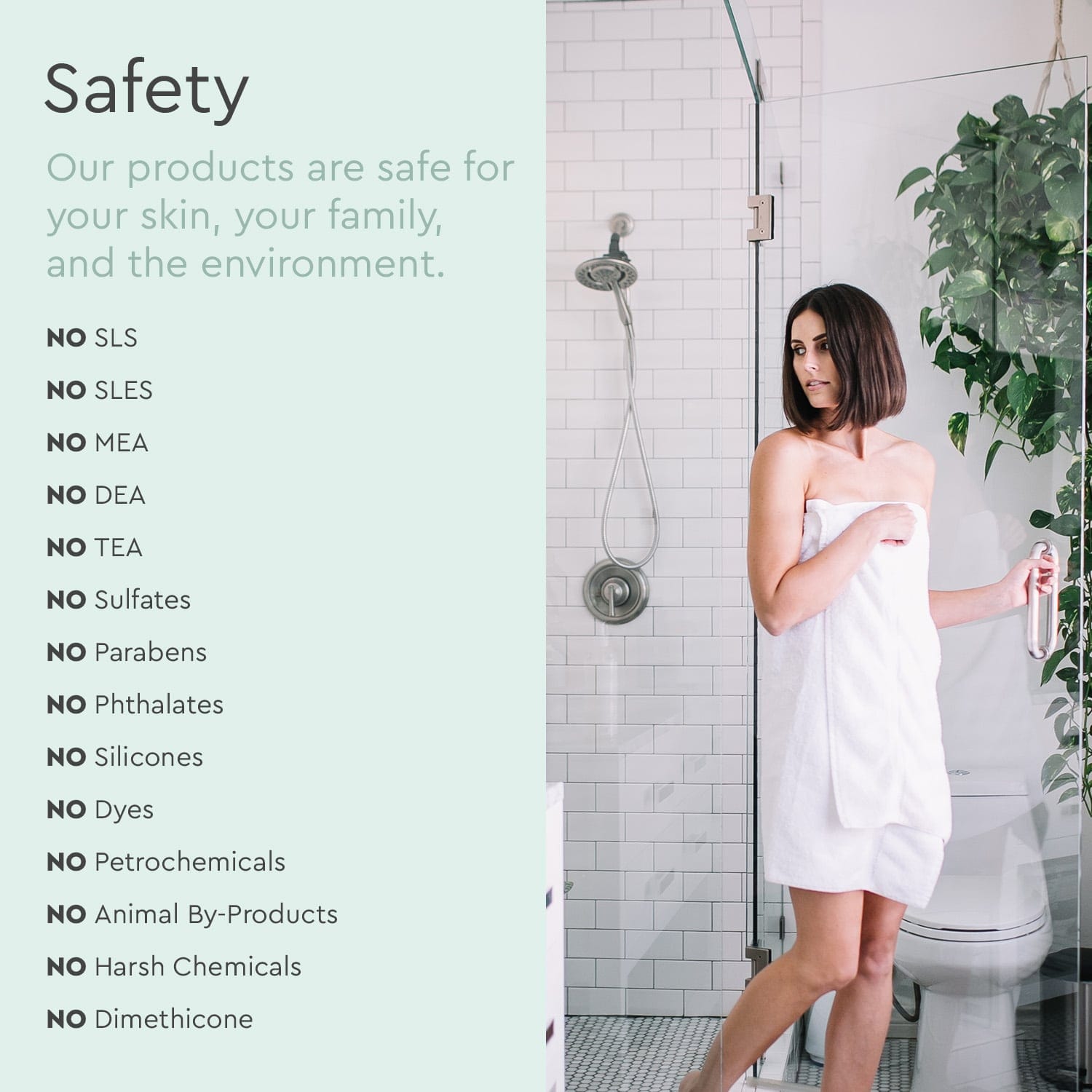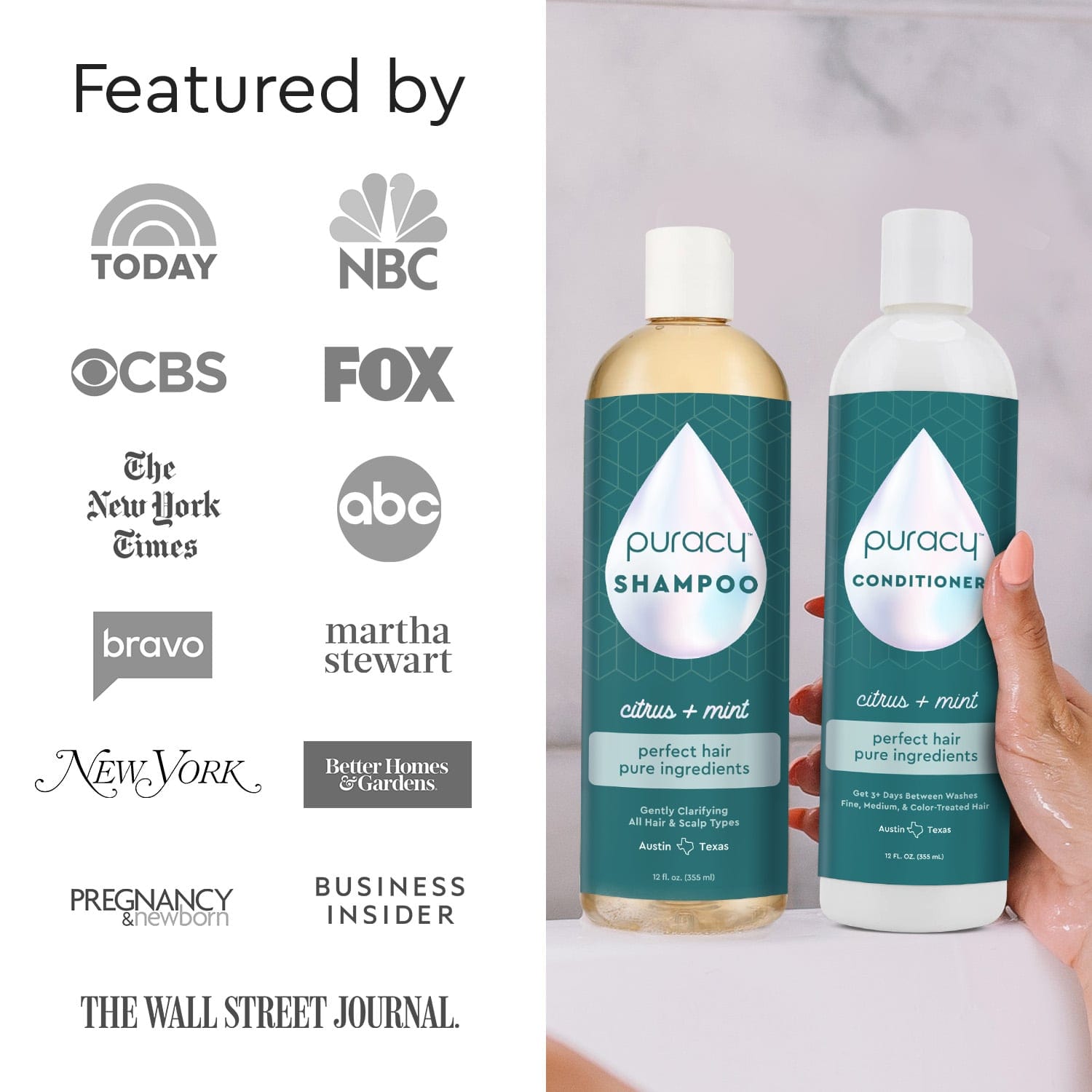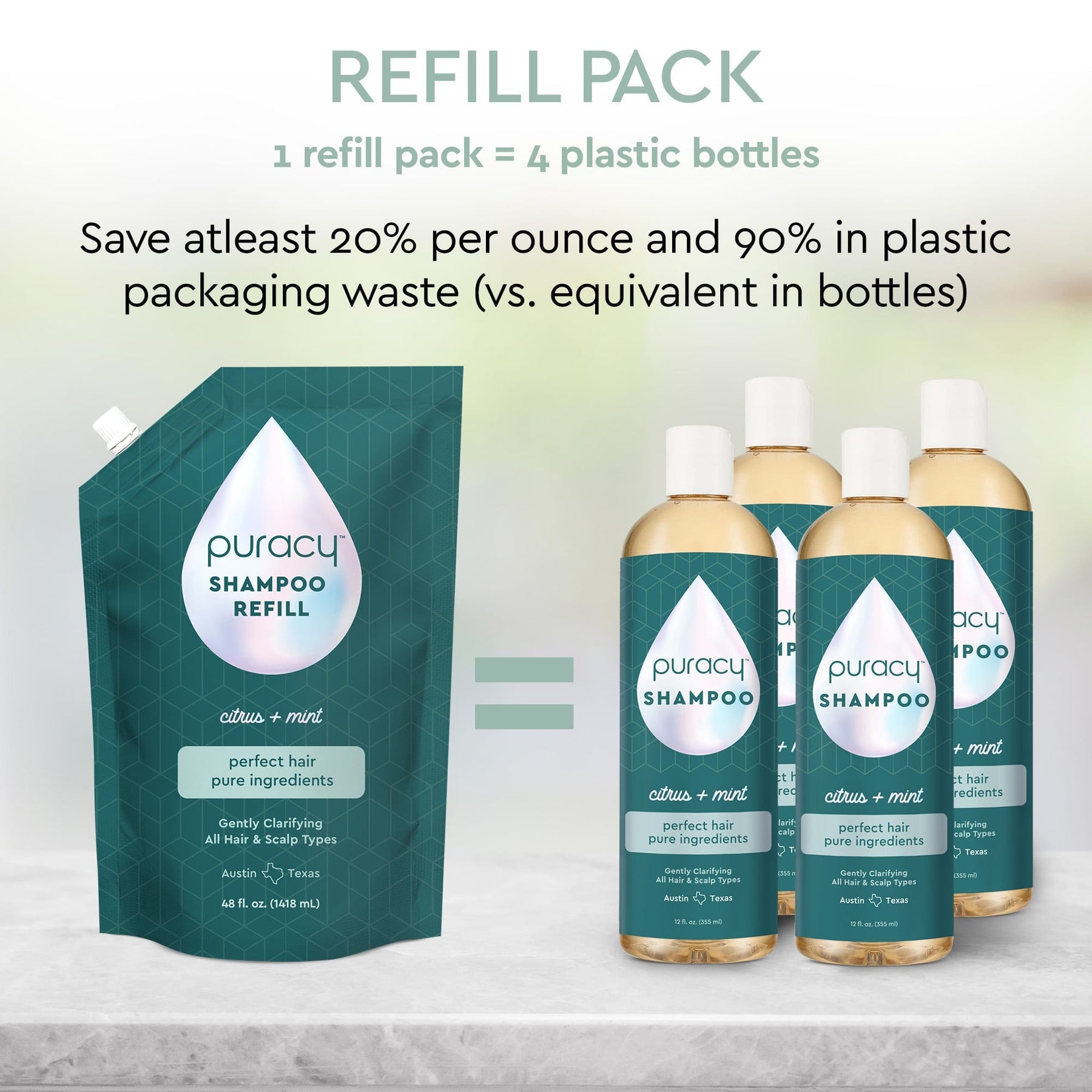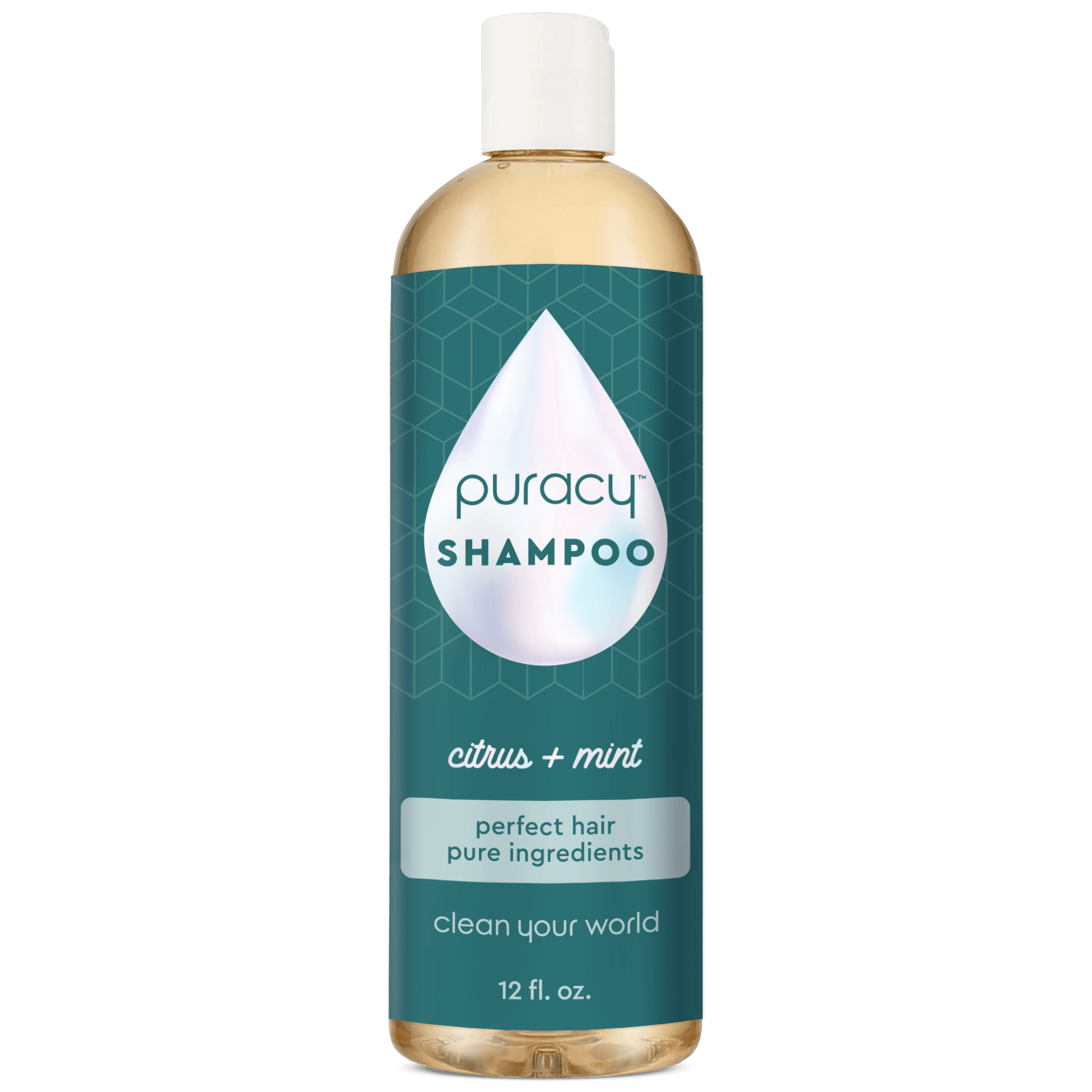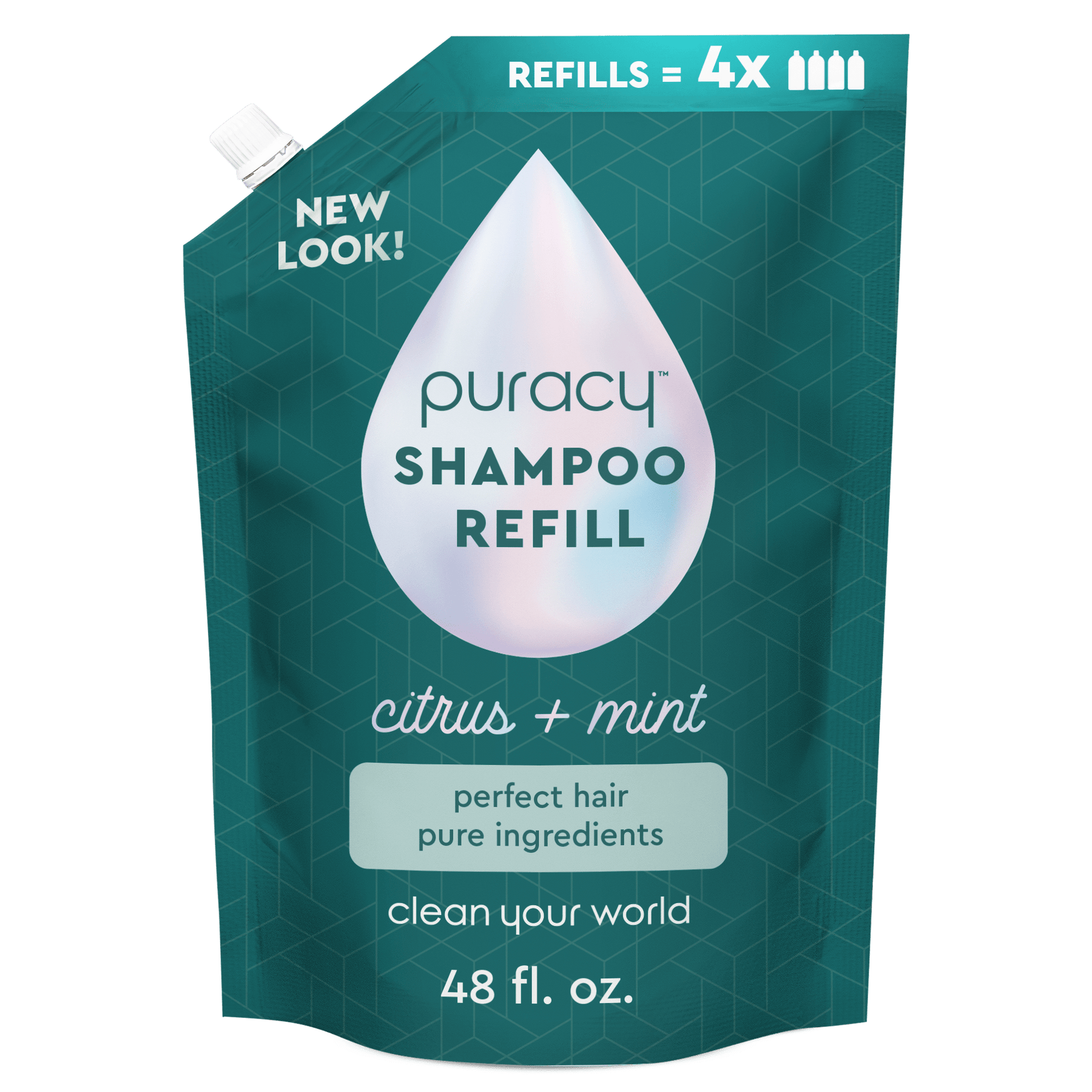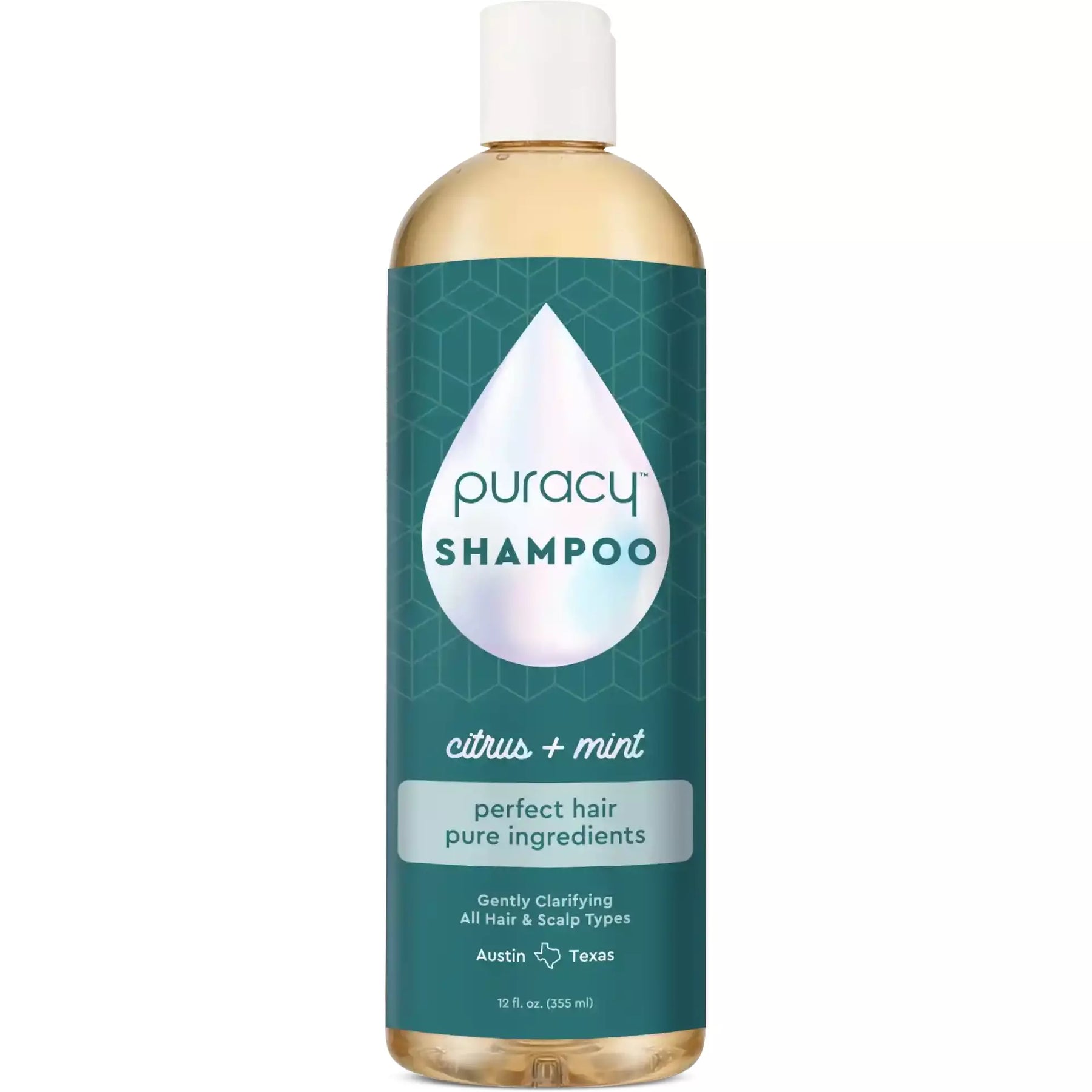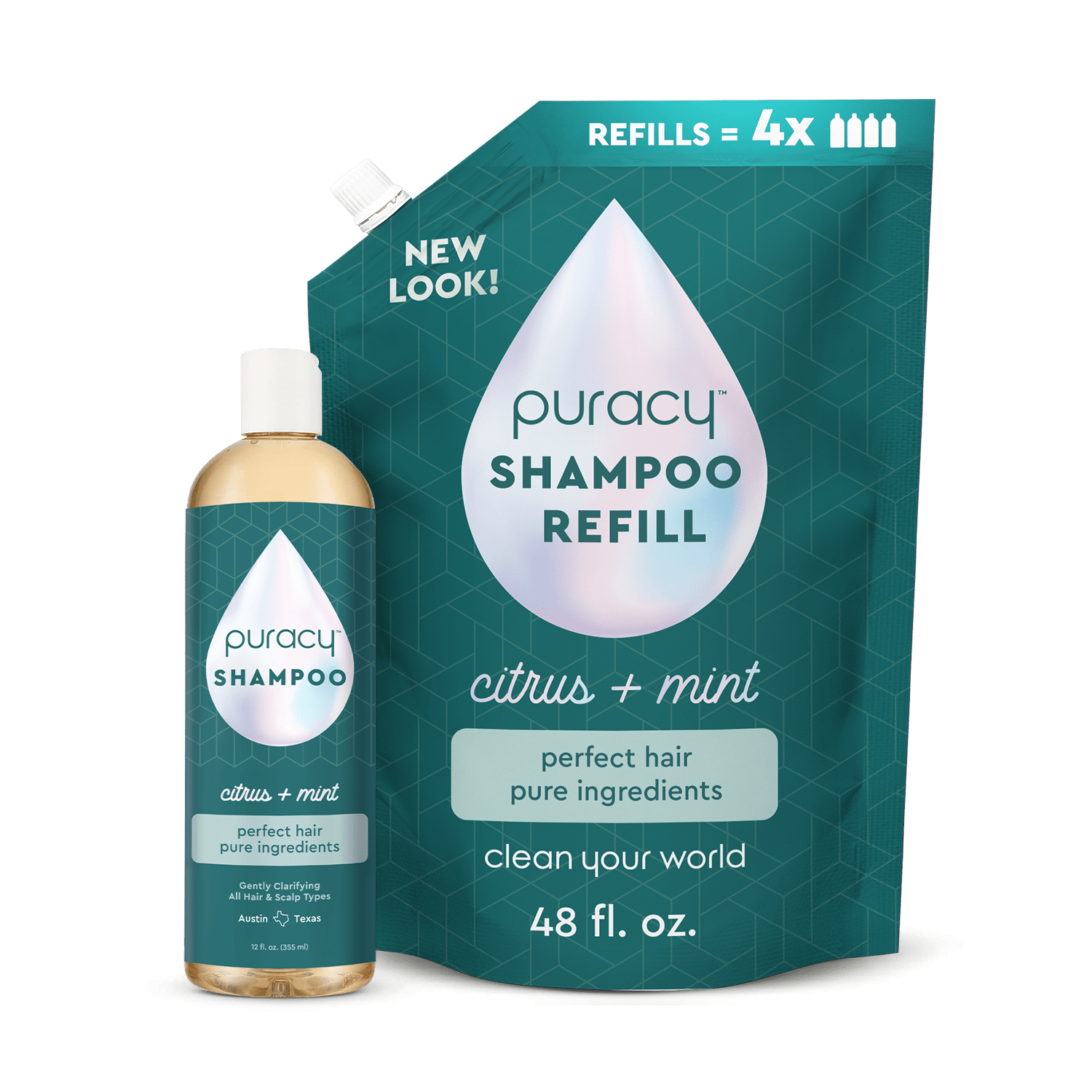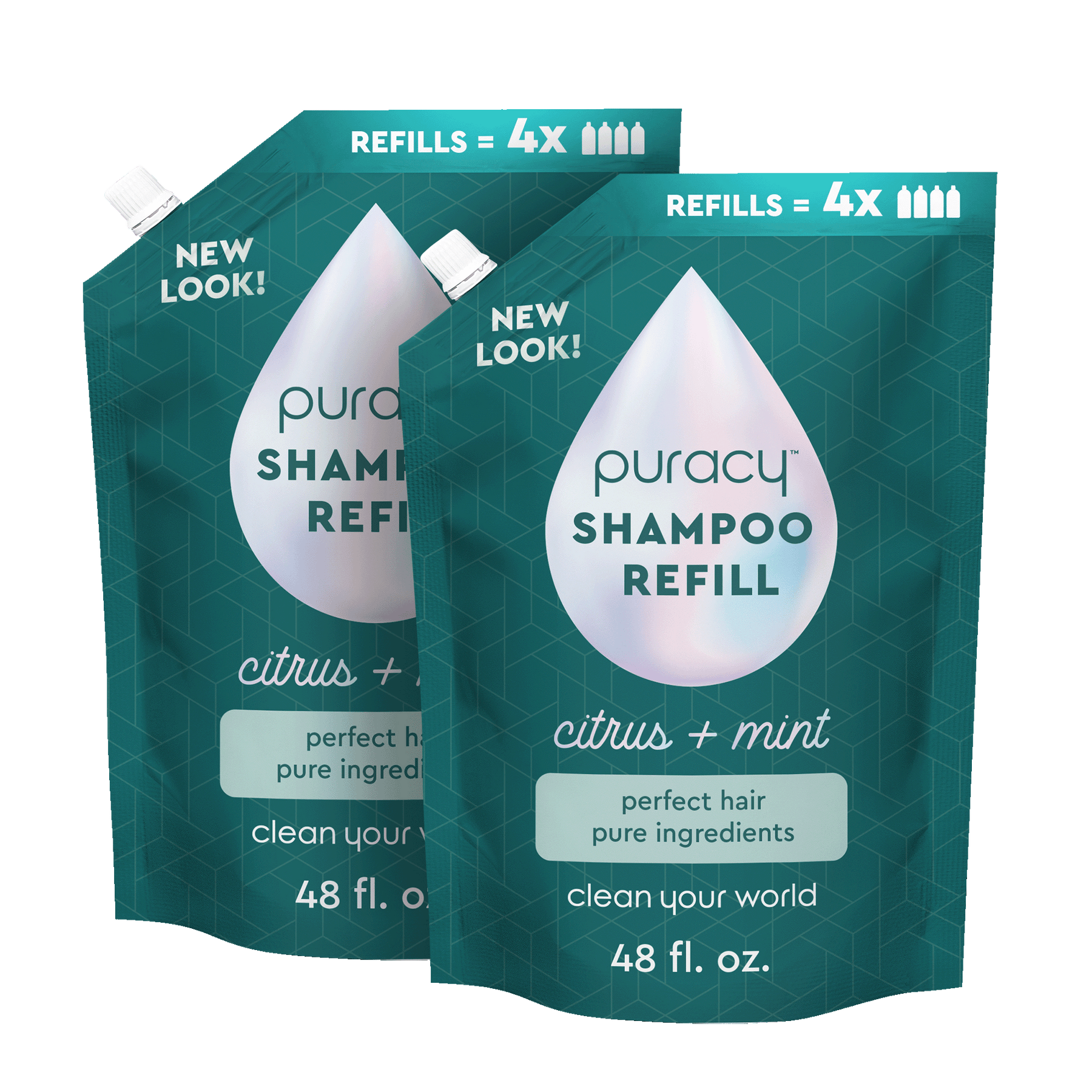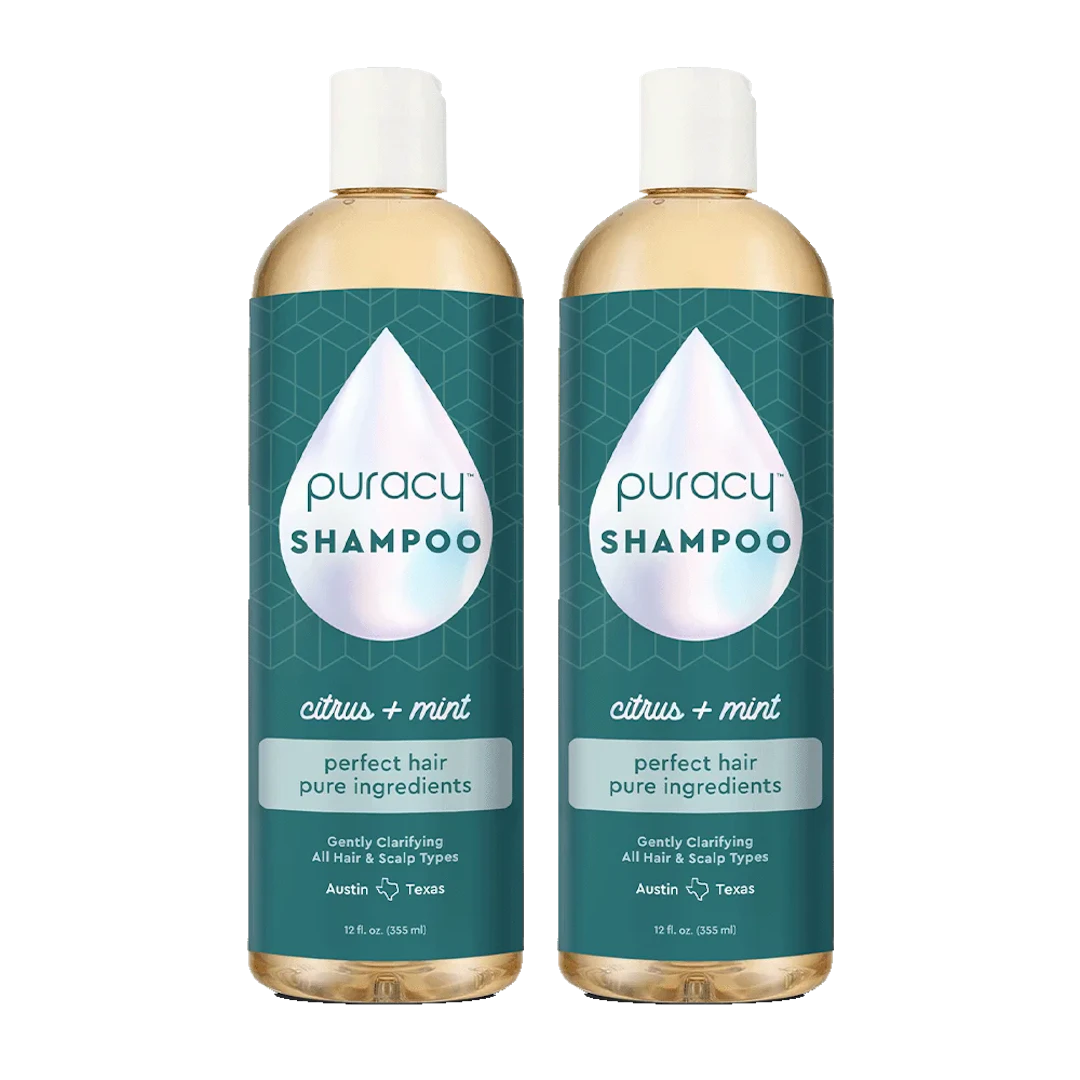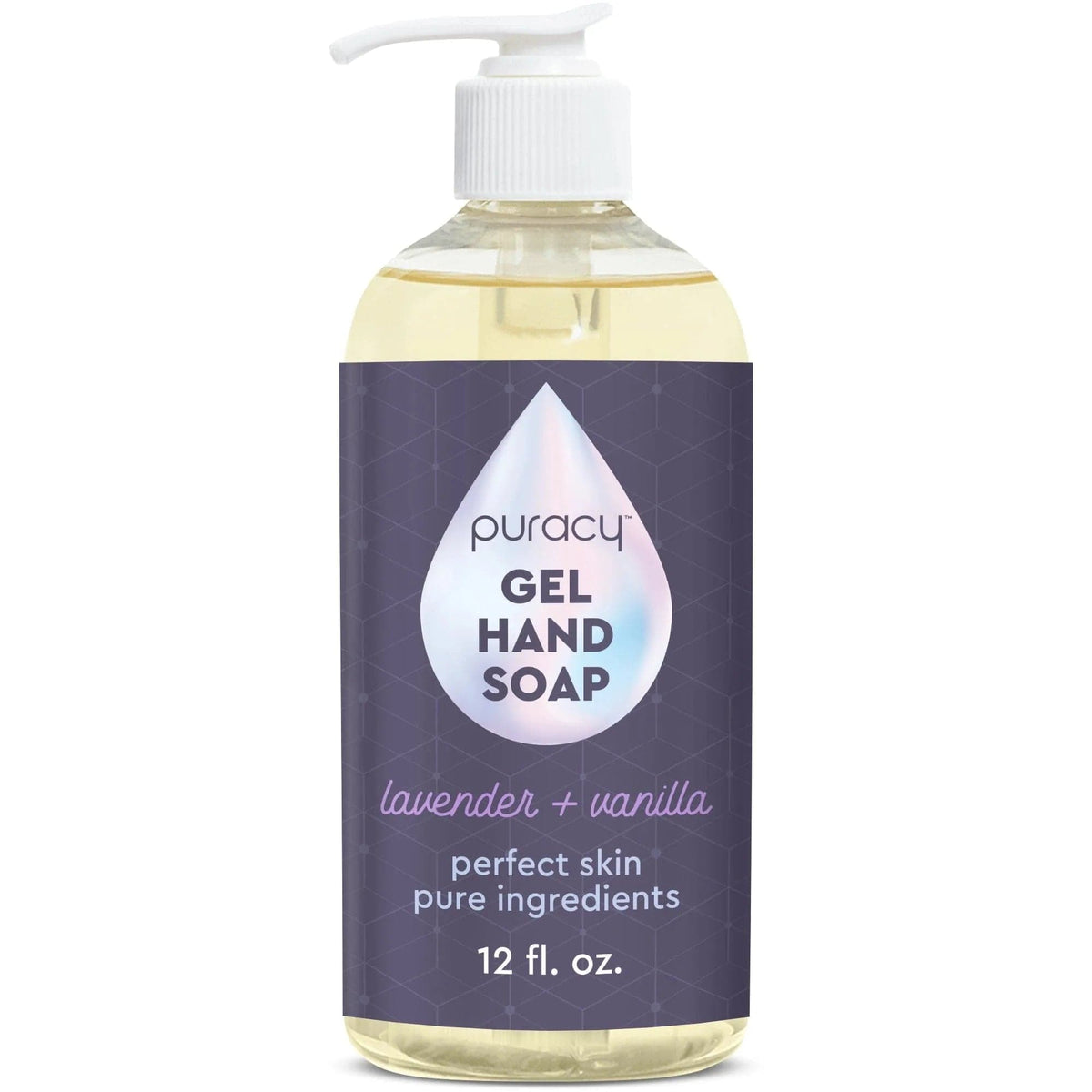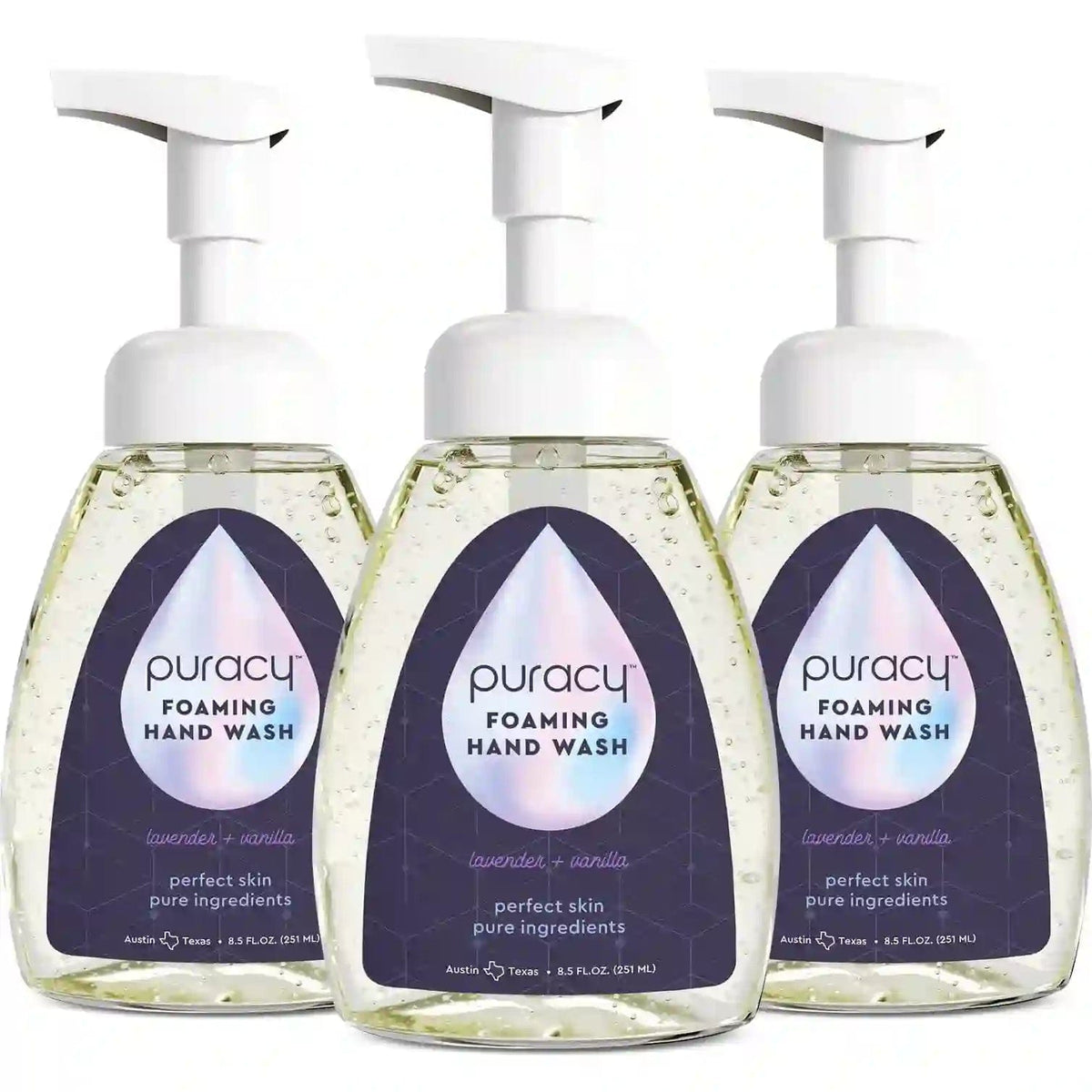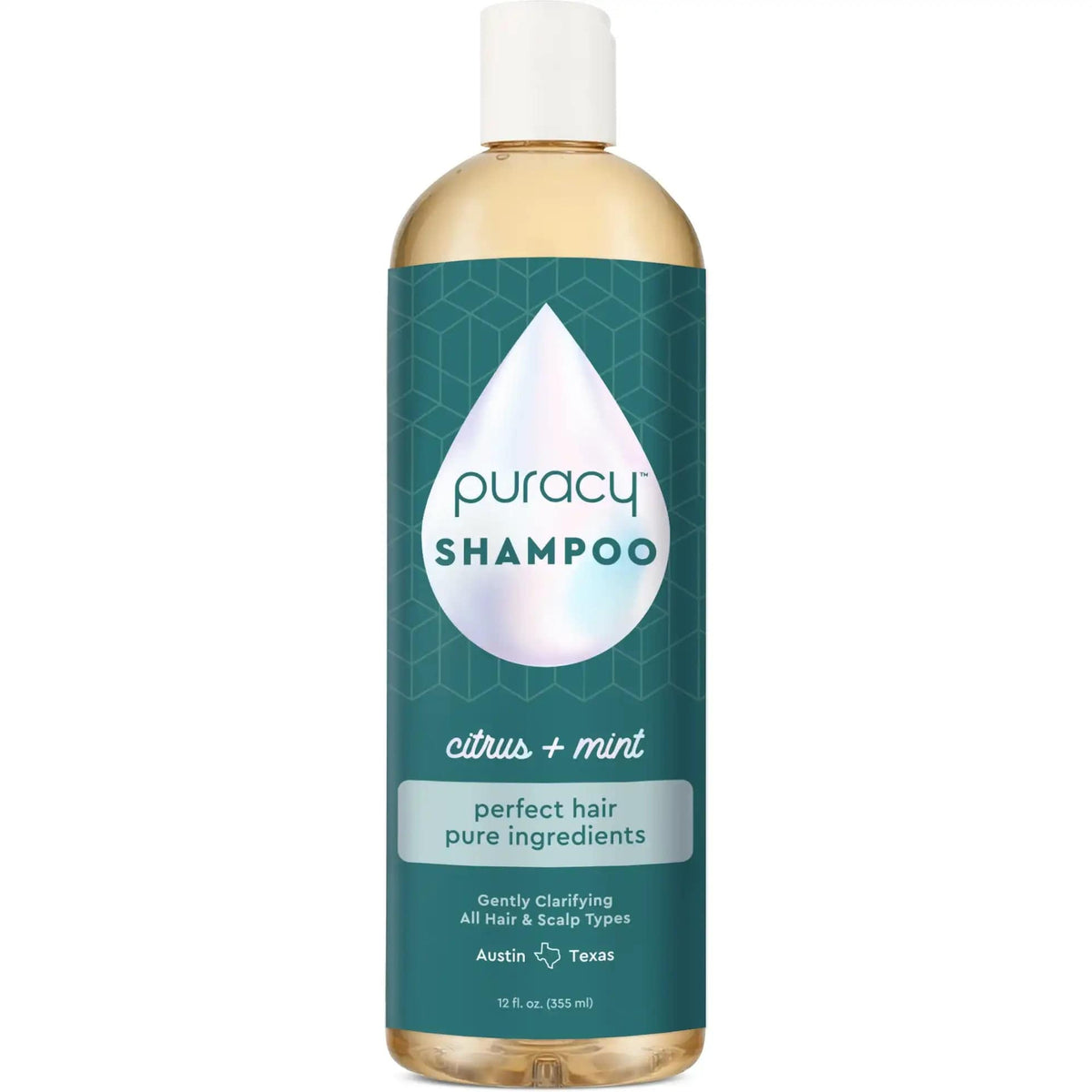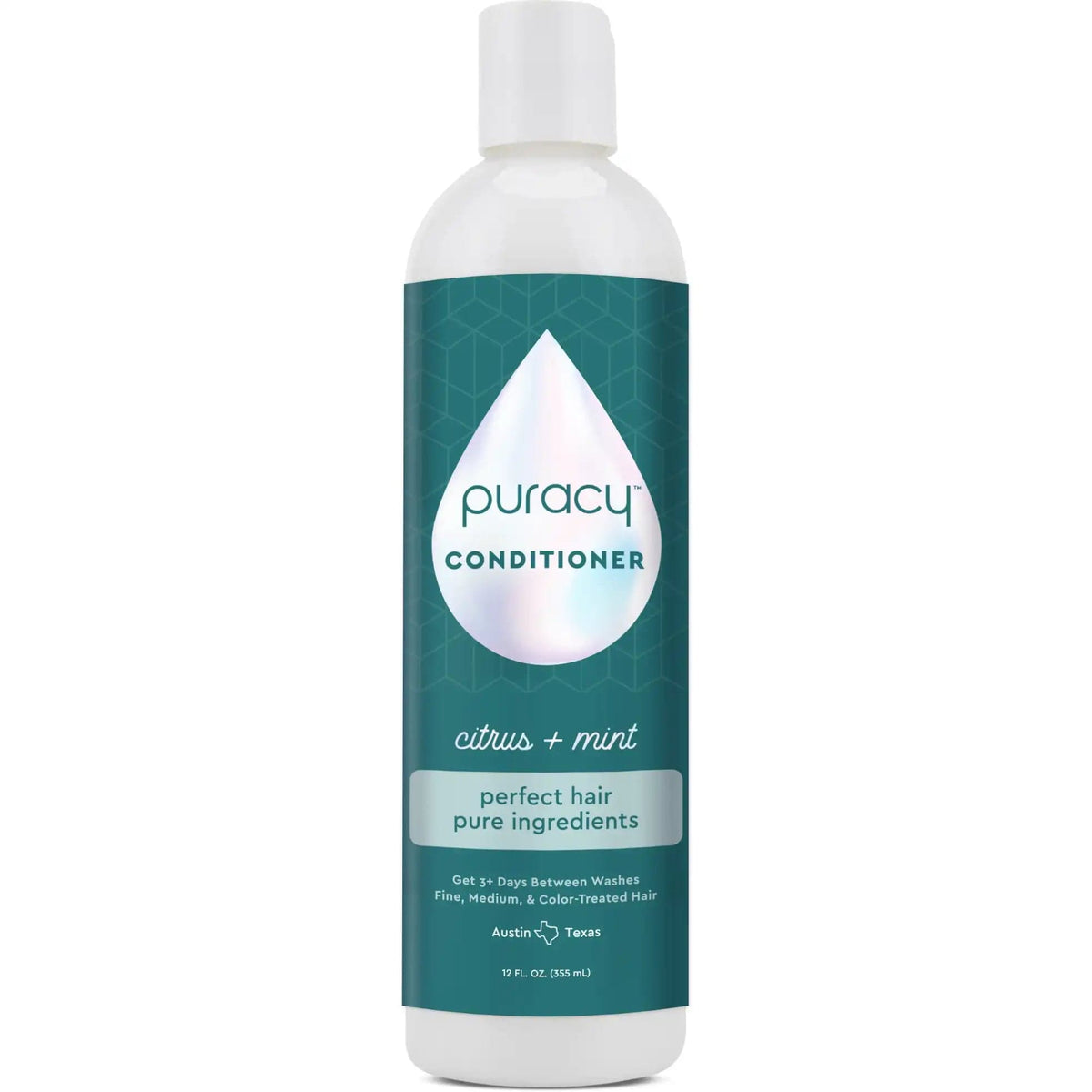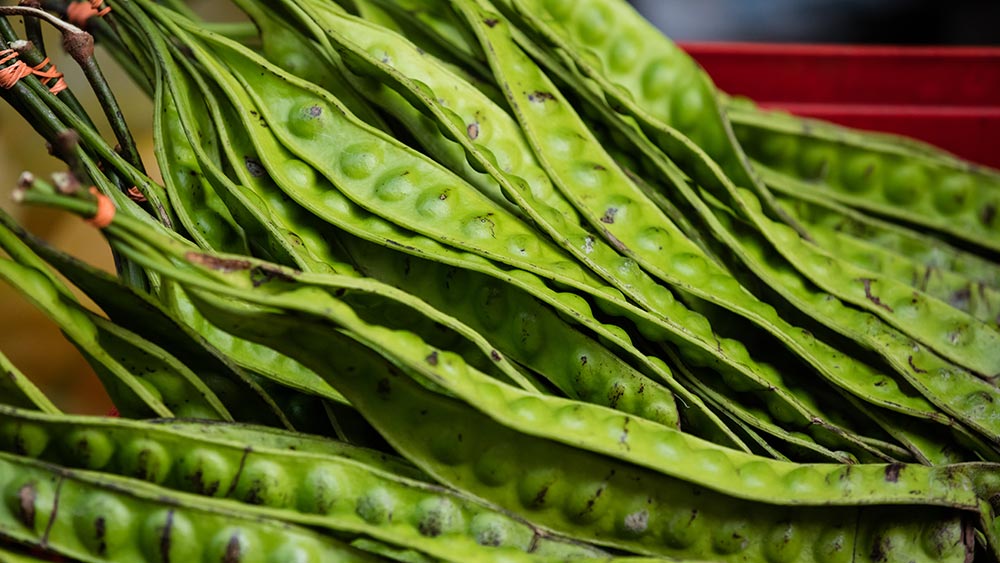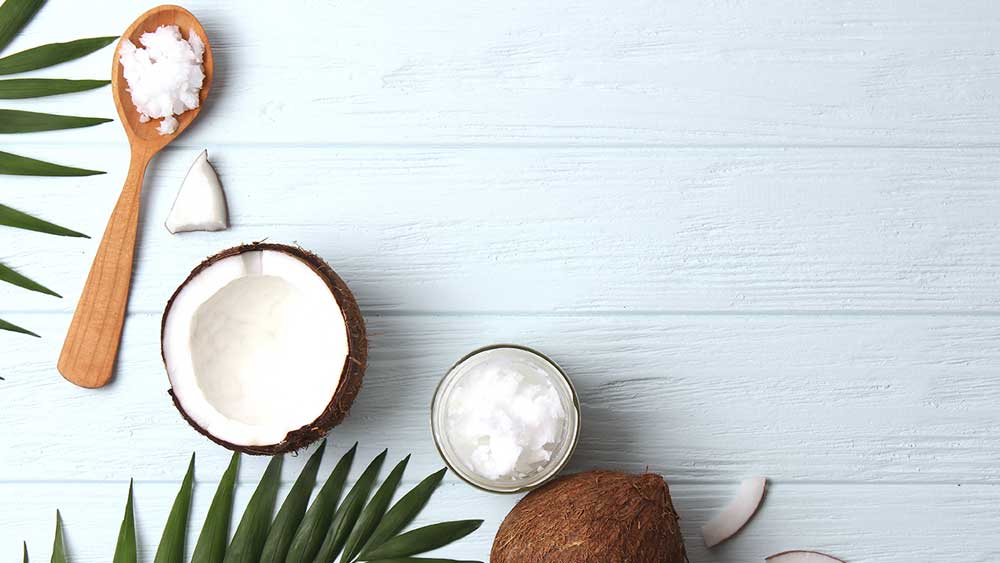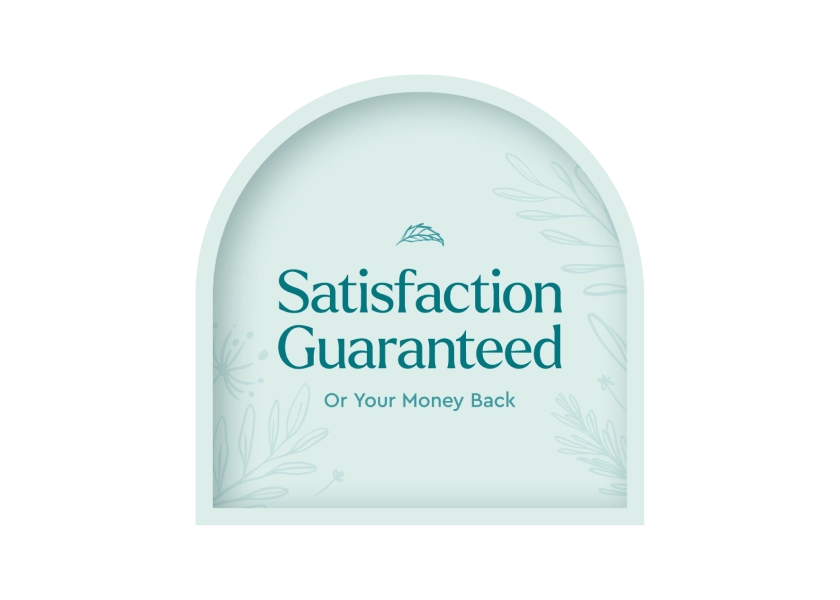- Derived from: geranium
- Pronunciation: (\jə-ˈrā-nē-ˌȯl\)
- Type: Natural
What Is Geraniol?
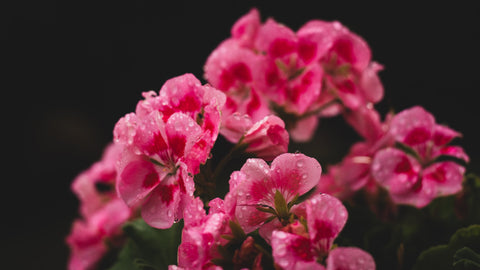
Geraniol is a colorless or pale yellow oily liquid with a sweet rose scent. It is derived from various essential oils, such as rose oil or citronella oil, and it is the principal constituent of geranium oil.[1,2,3]
Although it has a low water solubility, it is known as a common organic solvent. It is best known for its application as a fragrance due to its fresh, floral scent.
What Does Geraniol Do in Our products?

Geraniol is often used in peach, raspberry, plum, and other flavors, but in our products it gives things a fresh, natural scent. It is often found in styling gel, moisturizer, hair conditioner, sunscreen, hairspray, shampoo, makeup, and other items.[4,5]
Safe Puracy Products
Natural Shampoo
Other Uses
Geraniol can also be used in the following applications.
- Aromatherapy
Although geraniol is not an essential oil, this terpene alcohol chemical component is a natural antioxidant and often used in aromatherapy.
- Candles
Geraniol is often combined with citronella and lemongrass in outdoor candles to repel insects, as well as for their pleasant scent.
- Insect Repellent and Pesticide
Geraniol has antioxidant, anti-inflammatory and potentially anti-fungal properties that make it an effective natural insect repellent. It is also chemically stable and non-neurotoxic, which means it can also be sprayed on human skin without irritation.
- Food Industry
Geraniol is used within the food industry to enhance flavor compositions, such as to accentuate citrus notes. It can also be found in products such as chewing gum, baked goods, frozen dairy, gelatin, and more.
How Geraniol Is Made
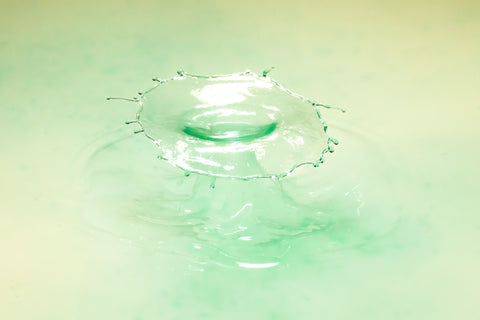
Geraniol production typically begins by chopping up the leaves and stems of the geranium plant or other biomass containing the required essential oil. The mass is then placed in distillation machinery that pushes steam or water through the plant material. The oil and other components rise and are funneled into a condenser, which cools the vapor to liquid. The oil floats on the water, where it is siphoned off.[7,8]
The geraniol is then isolated by distilling the oil under pressure and then heating the fraction that distills between 120 and 130 degrees Fahrenheit using an autoclave with acetic anhydride. The resulting esters are fractionated, distilled, and saponified, which separates out the geraniol.[9]
Is Geraniol Safe?
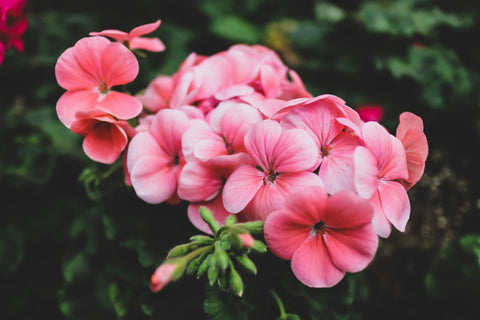
Learn how safe geraniol is when it comes to health, as well as the environment.
Common Concerns
- Cancer: Low risk
- Allergies and Immunotoxicity: High risk
- Development and Reproductive Toxicity: Low risk
- Use restrictions: Moderate
- In Cosmetics and Personal Care Products
Geraniol is safe to use at a concentration of ≥90%, and within these restrictions, it has been deemed safe by the International Fragrance Association Codes & Standards. It is possible to be allergic to geraniol in fragrances, and it can be a possible cause for allergic contact dermatitis. Check with your doctor before using any new products to ensure this ingredient isn't an irritant for your skin.
- In Food
The Food and Drug Administration (FDA) designates geraniol as a safe food additive, and it's also recognized as safe by the Flavor and Extract Manufacturers Association (FEMA).
- For the Environment
As a natural ingredient, geraniol is biodegradable, and has a low level of bioaccumulation, making it safe for the environment.
Geraniol vs Geranium Oil
Geraniol is a terpene found in the essential oils of geranium, as well as other plants such as roses and lemongrass. Geranium oil is distilled solely from Pelargonium graveolens (geranium).
Similar to geraniol, geranium oil is also known for its antioxidant and anti-inflammatory properties, as well as its floral scent.
Is Geraniol the Same as Citronella?
Geraniol and citronella are two different substances from different plants. However, they are both known as highly effective botanical repellents and often used together in outdoor candles and diffusers.
Why Puracy Uses Geraniol
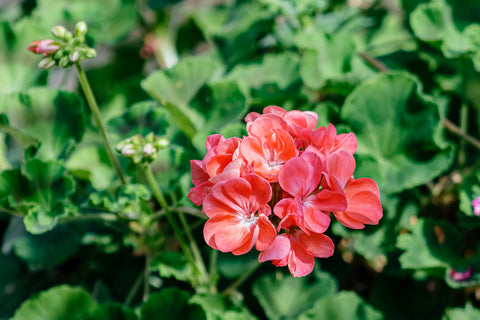
We use geraniol in several of our products as a fragrance. It is a better alternative to synthetic perfumes and phthalates. In addition, geraniol is on the EPA’s list of pesticides exempt from regulation under the Federal Insecticide, Fungicide, and Rodenticide Act.[10] The FDA has deemed the ingredient generally recognized as safe (GRAS), and Whole Foods deems it acceptable in its body care and cleaning products.[11,12]
Sources
[1] U.S. National Library of Medicine
[2] Environmental Working Group
[3] Allen, A. (1907) Commercial Organic Analysis. J & A Churchill.
[4] Environmental Working Group
[5] Cosmeticsinfo.org
[6] Cosmeticsinfo.org
[7]Carmen, G. and Hancu, G. "Antimicrobial and Antifungal Activity of Pelargonium roseum Essential Oils." Advanced Pharmaceutical Bulletin 2014 Dec; 4(Suppl 2): 511–514
[8] National Association for Holistic Aromatherapy
[9] Allen, A. (1907) Commercial Organic Analysis. J & A Churchill
[10] Environmental Protection Agency
[11] Food and Drug Administration
[12] Whole Foods Market

